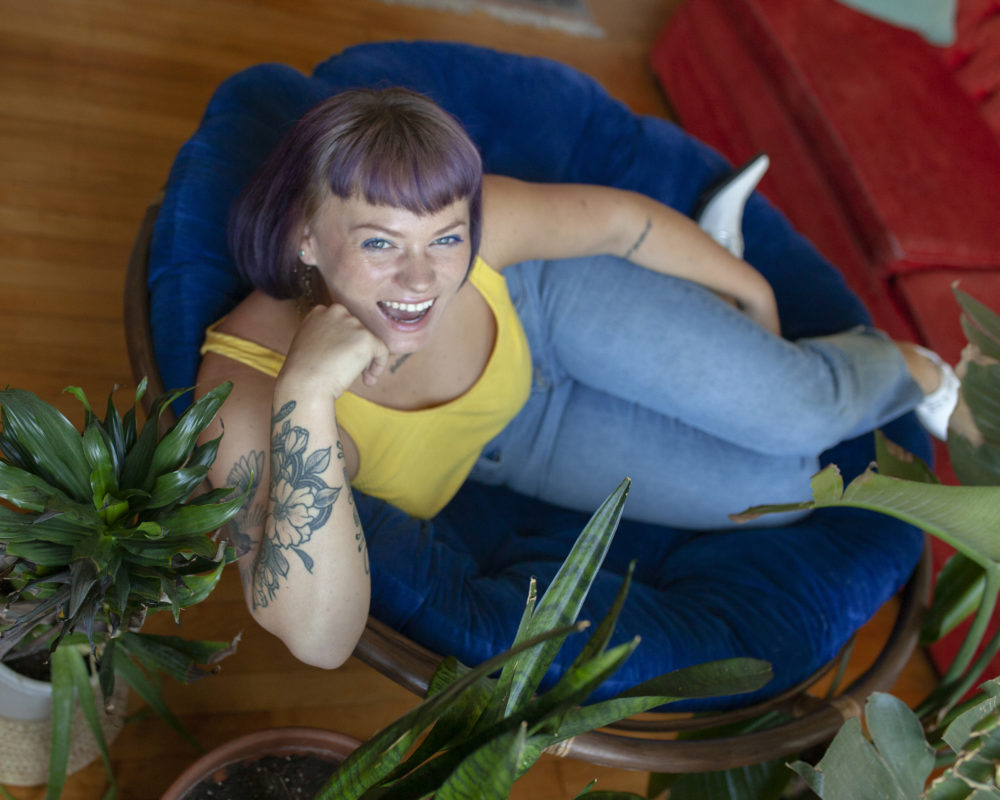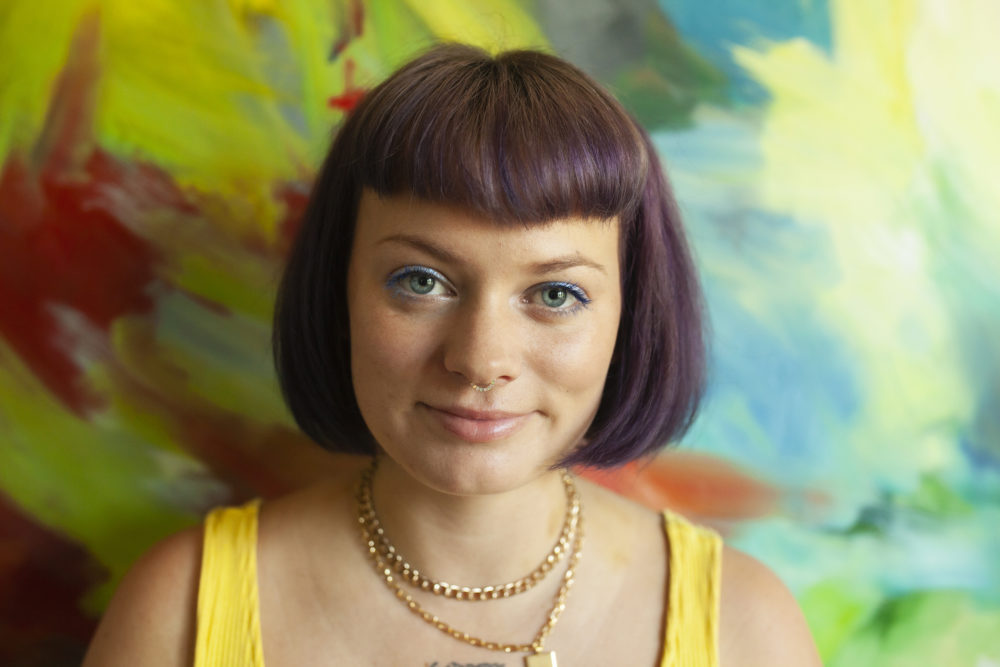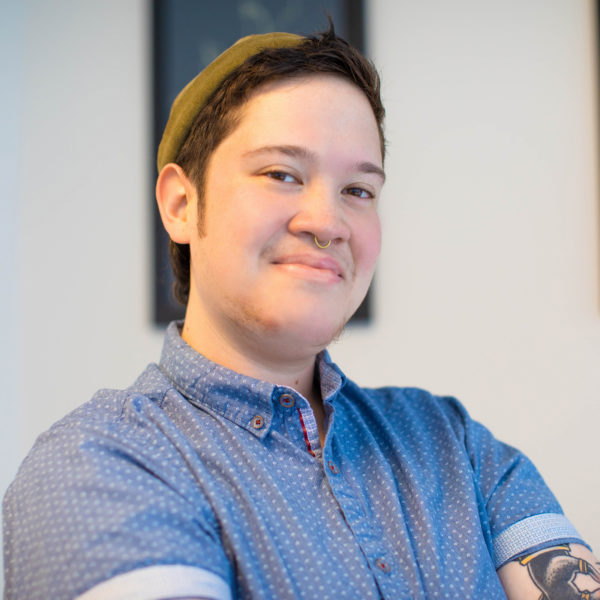Advertisement
This Boston Artist Protests Social Media Censors And Celebrates Bodies By Photographing Nipples

Boston artist Ally Schmaling is infuriated. Rules should only be rules, Schmaling says, if they protect from harm. But there are rules that exist not to protect, but to control and oppress.
Instagram’s community guidelines are straightforward: “male” nipples may be posted freely to the platform, while “some photos of female nipples” may not. In order to foster a “safe place for inspiration and expression,” the platform states, it must censor female nipples. Oh, but “photos of post-mastectomy scarring and women actively breastfeeding are allowed.” Simple, right?
The policy against female nudity has existed since 2015, but this year Instagram announced it has begun to use machine learning to flag and remove posts that it considers inappropriate, and demote or mute content that it deems unsafe for the community. Guidelines for what Instagram deems “non-recommendable” are vague and many users find themselves helpless to stop the censorship of content — often queer, feminist and/or body-celebratory images — because Instagram inherently labels them as suggestively or overtly sexual.

“Institutions aren't things to ever be put on a pedestal. Institutions are made of people, just like anything else. And people are fallible,” says Schmaling, who is locally known for their Queer & Non-Binary portrait series and recent collaboration with the Museum of Fine Arts, Boston on their "Gender Bending Fashion" exhibition. “We need more spaces and more events where people feel wholly represented. Only themselves, and unapologetically themselves.”
As a freelance artist, Schmaling explains, Instagram and other social media sites like Tumblr and Facebook are the only free tools they can access. These platforms are essential to the survival of independent artists; their search and discovery tools enable artists’ work to be seen by hundreds of millions of people, effectively creating interactive galleries where both fans and prospective clients can find them. However, while Instagram may state that their policies exist to serve and protect their diverse user base, Schmaling explains that the platform’s guidelines are rooted in outdated beliefs that are transphobic, misogynistic and fatphobic.
“I mean the fact that a robot or an algorithm has the almighty power to determine what someone's gender is, is sickening. It is frightening,” Schmaling says. “One cis man [someone who identifies with the gender they were assigned at birth] who I met through [Instagram], Ady Del Valle, has had his account taken down and posts blocked because of his body; as a fat person, the algorithm decides that his body is ‘female,’ whatever that means. So he can’t be topless.”
Schmaling has seen much of their own work taken down, and their account is currently shadowbanned by Instagram, making it difficult for Schmaling’s followers as well as new audiences to find their work. In response, Schmaling contacted Ellie Moscati, assistant producer at Windy Films, with the idea to use Windy Film’s East Boston studio space for a new project defiantly celebrating bodies (and nipples) of all types and sizes.
Aptly named "Nipplepalooza," the event took place on July 21, inviting community members to “sit in reverence, curiosity, and compassion” with their bodies, creating a portrait series with Schmaling that aims to directly challenge the double standards of media censorship and the gender binary.
“I want to push boundaries, because this is my livelihood, this is the only thing that I do,” Schmaling says, referencing their work as an artist and photographer. “But also, what's the point if you're not pushing boundaries, and what's the point if you're not making people ask questions about why these things are OK?”
More than 50 attendees came out for the portrait event at Windy Films, drawn for different personal reasons, but united by the opportunity to celebrate their bodies outside of the purview of media and social platforms that dictate when and in what contexts said bodies are appropriate to be seen. In return for their time, Schmaling will be sending participants a large format art print of their nipples, with a future home for the project still in the works.
“This is my first time doing anything like this,” said Binita Mandalia, an attendee and professional photographer herself. “Indian culture is, in weird ways, more conservative and less conservative. Like if you go to India, people are showing more of their body, but then certain parts are more censored. [So this is] a reminder for me to keep working on being more open myself and pushing it forward in my own life and family.”
The sentiment of reclaiming personal power was echoed by other attendees.
“It's not even a moment that represents vulnerability to me anymore; it's just a moment that represents having fun and feeling powerful and not caring at all what people are thinking, and just feeling beautiful regardless,” said Lindsay Daly, referencing her time in front of the camera with Schmaling.
“Ultimately our culture uses bodies like a choke collar,” said Jamila Bradley, a multi-disciplinary artist and a close friend of Schmaling’s. “So there's no trends in bodies here, there's no one thing that we're going to latch on to, whether it's a fat a-- or whether it's perfect pink nipples and then say everything else is disgusting here, because we're just going to revel in all of it, wholly.”
